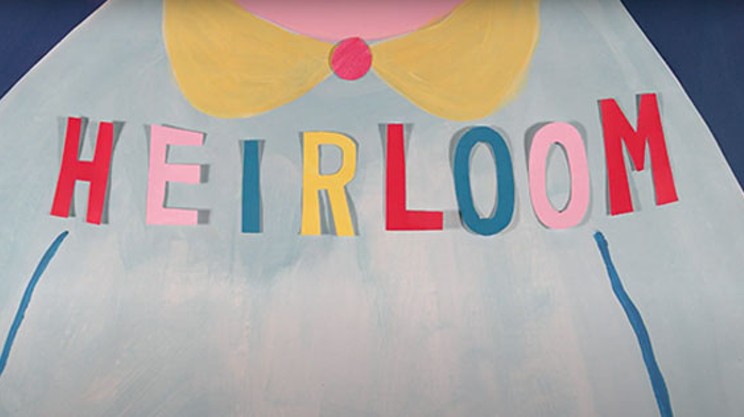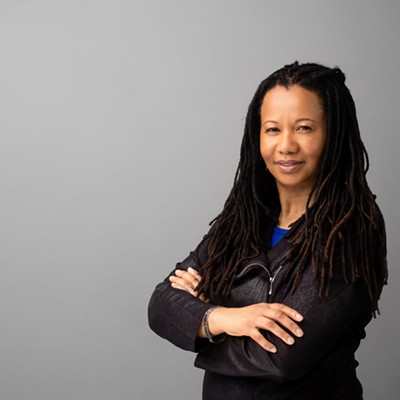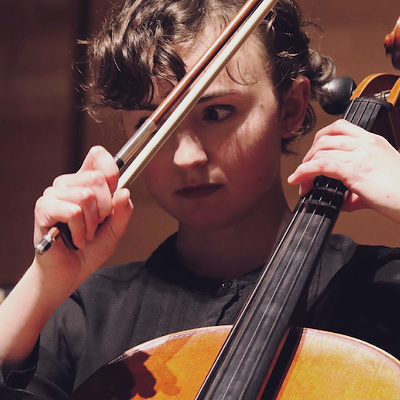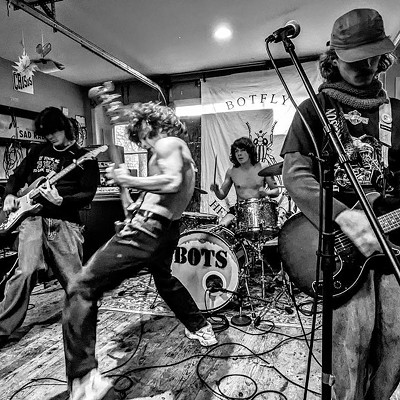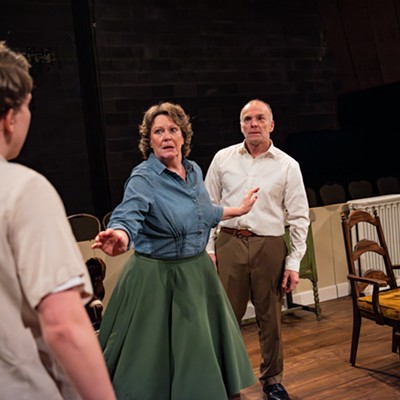Aquakultre: Legacy
The feast of a lifetime that will fill your ears, brain and heart, Legacy was one of our earliest candidates for album of the year—we even made a special digital cover back in May to announce just that. “Music shouldn’t be hard. It’s your creation, you just do it as you do,” Aquakultre’s frontperson and driving force, Lance Sampson, told us then—belying a 10-track effort so perfectly constructed and executed that it not only lives up to Sampson’s musical heroes (that’d be conscious rapper Common, neo-soul queen Erykah Badu and throwback titan Leon Bridges, to name a few) but also saw the CBC Searchlight winner land his band’s debut LP on this year’s Polaris Prize long list. In short? Bring your appetite for this one. Thanks to Sampson and his bandmates Nick Dourado, Nathan Doucet and Jeremy Costello, the table is set for excellence.
Keonté Beals: King
A three-year sonic drought ended this October for fans of North Preston R&B luminary Keonté Beals as he dropped his long-awaited LP, King. Over nine tracks that evoke Elijah Blake, Ledisi and peak 2000s Usher, Beals delivered songs fit for everything from baby-making to breaking up to party starting to reckoning with personal identity. The self-produced effort sees Beals playing with shades of reggae (the rip-roaring opener “Let Go”) and returning to familiar slow-jam territory (the silk-sheet “Know Better”), all while finding his true voice and exploring aspects of his life as a Black man: “That’s with mental health, that’s with love, that’s with triumph, lust,” he explained to The Coast this fall. “Listening to King after I wrote it, it was like this really embodies my whole experience.”
Kye Clayton: Temporary
The borders of the word prolific almost can’t hem in the rapper and beat maker Kye Clayton, fresh prince of Uniacke Square: In 2020 alone, he released four albums and four singles, along with having his fingerprints over all the projects released by the record label he co-founded, Let Dreams Be Noticed—Halifax’s own Odd Future.
Perhaps even more eyebrow-raising? They’re all good. Like, really good: Even though it’d be easy to compare Clayton to Nas because both rappers possess the rare ability to construct a complete song in freestyle format, our Halifax hero doesn’t have the Queensboro king’s tendency to offer equal numbers of hits and misses. So, trust when we say that, by picking Temporary as the top of the pile, your ears are in for a trip that’ll remind you of Travis Scott, G Herbo and J. Cole.
“My main message, my quote that I use, is your story heard,” Clayton told us this summer. “I try to tell my story as much as possible through my music and then try to get other people to resonate.” As Temporary—a mixtape asking “are you gonna live your life through someone else’s ways—or yours?” as Clayton told us via email—proves, it’s resonating loud and clear.
Matty Grace: Rumination Year
There’s a moment on "Connaught / Chebucto”—the song that opens self-professed writer of sad songs Matty Grace’s flawless Rumination Year—when you wonder if your heartbeat will ever thud along as evenly as Grace’s stomping guitar. Then, the strumming speeds up, chopping a new tempo—an intentional underlining to her singing “Wait for a bus that never comes/ A succession of false starts and clumsy thumbs/Is this it?”
Your unspoken question becomes a wish, fading from your mind as you lose yourself in this bleak survivalist narrative—as the four-valved box in your chest tries to keep up.
Carrying the spirit of a punked-up Alanis Morissette and blending lo-fi bedroom pop with the crunch of Outtacontroller and the Heart Attack Kids, Grace is here to keep you company as you recall your failings and gather your tattered courage to try again. When she sings “Keep towing the thin thin line of the space between/Being a doormat and losing everyone and everything” over the reverbed guitar of the EP-closing “This Rusted Bike Lock,” you’ll feel a little less alone—and you’ll stand reminded that the best punk songs are the ones where nihilism isn’t negotiated with, but is attacked with both hands.
In a year of sharp edges—in a time when the hands on a clock felt like shards of glass—we needed softness the same way we need calcium: To bolster and fortify us. How heaven-sent, then, that we could curl up in the cashmere of Gianna Lauren’s voice as she sings about being “a machine that breaks down sometimes” and about “not knowing what the future holds” on this tight, five-track EP.
Inspired by the likes of Mitski and Big Thief, Lauren took to Riverport’s famed Old Confidence Lodge to record live off the floor—and the album’s lurching melodies and gum-snapping drums add the perfect crunch to her Feist-feeling vocals. Atmospheric, ephemeral and haunting, it’s some of the only songs we want in our head after 2020 is over—after, as Lauren sings, “the lights go out.”
Matthew Grimson: Prize For Writing
“The governor-general with the hard-to-say name/Has given me a prize for writing,” rips Matthew Grimson in the opening lines of his posthumous, debut album’s titular track. "I haven’t written a thing/In ten months’ time/But they’ve given me a prize for writing.” With a Daniel Johnson air and the type of affectation Conor Oberst would later build a career on, Grimson’s is the sort of singer-songwriter rock that breaks down on purpose, scattering crumbs over the spectrum between brutal and soft.
Yup, if there was a spot on the sonic map that was the aural equivalent of a sun shower, of witty lyrics tipping into sad confessionals as they flow over rough-edged ‘90s rock, that spot would bear one name on its flag: Matthew Grimson.
Grimson was, in a way, the ultimate musicians’ musician—having fans in the likes of Erin Costelo, Joel Plaskett and, of course, Sloan’s Chris Murphy. (Speaking by email, Murphy goes so far as to call Grimson “maybe my favourite songwriter”, sharing a lyric sheet and adding: “His lyrics are hilarious/devastating. I would never offer to send a lyric sheet for my own music. My lyrics are fine. His are spectacular.”)
There’s a reason why Grimson—whose sound (arguably) encapsulates the essence of 1990s Halifax better than the scene’s biggest names did—might not register for you: Despite recording a mammoth amount of work (Murphy estimates Grimson had “hundreds of cassettes and CDs”), he never had a major album release during his lifetime.
But there finally is one now.
Released on August 7, the posthumous Prize For Writing is the record that, at long last, can sit next to your copy of Thrush Hermit’s Clayton Park and Sloan’s One Chord To Another. It’s some of the best music to come out of Halifax during its days cosplaying as Seattle—and some of the best music to come out of 2020, too.
Kim Harris: Heirloom
The first thing to grow back after a forest fire—once the over-story of branches and the moss carpet are replaced with carbonate grey ash—are blueberry bushes. They creep low to the wreckage, taking root where nothing else will grow. Soon, tiny pointed leaves will leap off their sharp branches. Then, the sour-sweet berries themselves come forth, a crowning glory atop a mass of scar tissue on the forest floor.
The resilience in the juice that runs down your chin from the first bite, the aliveness they taste of? If any of it made a sound, it’d be that of Kim Harris’s newest record, Heirloom.
“Have you burned every thought of me, set ablaze in fireweed?” she sings on the album’s titular track, a voice aflame in itself, roots digging into your skin the way the wildflower she sings of snags the burnt topsoil. A new ecosystem is in bloom around you, sprouting from soft piano and budding atop acoustic strumming.
It’s been six years since we’ve heard a new crop of Kim Harris songs—a wait that saw the singer-songwriter swap a folkier sound for the sheen of alternative pop, delivering a glimmering jewel-box of 10 tracks back in January that’ll hold comparisons to Fetch The Bolt Cutters-era Fiona Apple, the slower side of Stars and the gut-punch of a Phoebe Bridgers tune.
“Lift it up off me/I’ve been waiting here for what feels like ages,” sings the voice CBC crowned “the mightiest coming out of the east coast”—a title that fits, even if it chafes a touch. (Harris isn’t giving us Adele-style lessons in lung power alone; as Heirloom proves, sometimes it’s a whispered vocal that kicks you hardest.) Polished production cracks around the edges at times, in tune with Harris’s inflected emotional state, feeling like a chipped-on-purpose manicure. These are the sorts of ear worms that double as emotional catharsis, lyrics tattooing to your forebrain because you can’t stop singing them—and you can’t stop feeling them.
When your stomach lurches and you need the reminder you’ll be ok, skip to “Waking Up” (“I was magnetic in my laurels/I was waking up, I was waking up/But you were already gone,” Harris sings, reminding you to hold tight your self-sufficiency). When your inner critic tries to tear your tightly woven dreams, play “Once You Were Wondrous” (reverbed strings and hot-stepping piano help Harris’s point that fireflies “glow and glow without apologizing” teach you something). When you need a reminder to level up your standards, “Aquarius” is the track you need (“You say I move like I’m walking through water/Like all my limbs won’t ever hit the ground/I know you’d rather it that way/then I won’t notice when you let me down,” Harris sings over cymbals crashing like waves).
By the time the creeping guitar of “Neighbourhoods”—the album’s closing track—sets in, you can feel ferns unfurling, trees stretching skyward and cell walls solidifying. “I wanted to believe you when you said I was honey,” Harris sings with a salted edge to her voice. The trees dig their toes in—and so do you. “Baby don’t you see/I’ve been waiting here for centuries,” Harris says. Thankfully, the melody and its self-contained wilderness will stick around just as long.
Holy Crow: Gater
The sort of bedroom recording project your finest folk dreams would barely dare to hope for, Holy Crow’s Gater is gossamer melodies draped over dimpling banjos. It’s simple lyrics about the everyday strained through the soft cries of a melodica. It’s the gorgeous palette of blues and purples found in a fading bruise.
Over nine tracks, lifelong best friends Tucker Bottomley and Gabe Squalor blend lo-fi, punk and alt-country into the sort of addictive listening experience that’ll make instant fans out of anyone who loves the poetry of Kris Kristofferson, the fuzzed edges of Guided By Voices and the heart-forward harmonies of The Highwomen. Recorded, mixed and mastered at home during the peak of the pandemic’s first wave, it manages to carry the label of time capsule and also transcend it, as Bottomley and Squalor harmonize “I promise to you/You promise me too/That anything that were to happen we will make it through” and later, again, as they duet the line “I’m by your side/A chosen lifetime.”
Kxng Wooz: Redemption
After a three-year break, the self-described “conscious lyrical rapper” King Wooz (given name Martez Wiggins ) has made a roaring comeback with the new EP Redemption, an album he says stems from self-reflection and “just being like damn I haven’t done anything in a while.”
This mix of everyday worries and big-picture thinking permeates the album’s six tracks—but might be best witnessed on the album-ending “My Path,” Wooz’s favourite song on the project. In a J Cole-meets-Shad flow, he drops bars about battling indecision and striving for financial security—all while trying to hold onto his dream of pursuing music:
“I'm at a fork, which way should I go/People alway tell me what I should be/They don't get me, so how can they know/I’ll Never find out if I'm too afraid to leap,” he raps.
Redemption is a tight offering without an ounce of spare fat that features sparkling guest spots from local scene heavyweights like Aquakultre’s Lance Sampson, MAJE and Chudi Harris. It’s also produced by Halifax hip hop mainstays like Ghettosocks and DJ Uncle Fester, giving a glittering, golden-age-of-rap air to the beats.
But don’t let the VIP guest list trick you into thinking Wooz needs help to make a track cut deep.
In fact, some of the most blazing moments on an album full of bright spots are when hit spits bars without any music behind him at all. Yup, songs “The Dawn” and “The Fight” sound more like poems than raps—and this was deliberate: “Sometimes, you need to leave the beat behind so you can actually convey the message that you’re trying to portray,” Wooz tells The Coast. “All music is poetry.”
— with files from Seyitan Moritiwon
Like A Motorcycle: Dead Broke
Like a Motorcycle’s second album Dead Broke chars the mask of glamour fused to our notion of resilience. It’s a sonic scoffing at the commodification of wavering forward motion, where the slightest loss of balance could be a stumble down an endless spiral.
The record is a gripping exorcism. Screaming, crying and desperately clawing at skin—trying to tear out its own possession. With more energy and grit than its debut album High Hopes, Like a Motorcycle shows the destructive and deeply intimate pursuit of self-reclamation. The 13-track effort seamlessly pairs episodes of hyper-awareness with riffs that make us yearn for a time when we could catch an elbow to the face and leave Gus’ Pub with busted lips.
The opening track, “Punk Two,” throws you behind the wheel of a tour van going 150 kilometres down the Trans Canada Highway, kept awake with nothing but Rockstar Energy Drink and a will to live. Each crack from Michelle Skelding’s snare jolts you back from fading consciousness—just in time to avoid colliding with a guardrail.
Lyrically, “Punk Two” addresses the emotional wear of empty pockets, giving context to the album title as the group screams: “Dead broke, dead broke (I’m running out of money so I guess I’ll have to die!)”
Another album standout? Seeing Like a Motorcycle explore the deepest circle of capitalist hell on “Satan Does the Numbers,” revealing a hedonistic Ponzi scheme projecting a mirage of escape by way of indulgence. Under the opening lick, the kick drum booms. It’s the sound of Satan stomping out dreams like joint roaches with his leather Gucci boot.
On both “Satan Does the Numbers,” and the following track “Idols,” KT Lamond and Dave Casey execute chaos with an even hand, complimenting each others’ tone and style with intensity, precision and delicacy. The pair stride like assassins when the record is at its most feral, turning unisons into ascensions during its emotional peaks. Their solos are balanced and thematic.
Like a Motorcycle’s ability to deliver high-speed bangers doesn’t come as a surprise. But with this record, the band has honed its slow(er) jams: “Swept Out” and “Hotel Hallway” hold their own against the album’s more abrasive offerings. They show being dead broke is more than being financially broke. It’s being emotionally broke.
Piano morphs into an orchestral clash to kick off “Sick Children.” The vocals growling, low and brooding. You hear callouses form on Lamond’s larynx as she screams: “Whatever deity would put this into place/ I would spit in his face!”
From there, Dead Broke winds up for it’s death blow. “Drew” and “Paranoid” are less intense than other tracks on the record, but give the listener time to recoup before the octave sliding guitar on “Back Burner” goes off like a siren. The rip-roaring continues on “Strange Adventures,” and with a seamless transition, the listener finds themselves already immersed in the album’s closer: “Wide Awake.”
After a half-hour of mounting tension on Dead Broke, this track lets you unclench your jaw. Kim Carson’s playing shines here, her bass driving a sense of urgency—using it to harmonize with the vocals to wring worth from each syllable. This is Like a Motorcycle at its most sober. There is a nihilistic hopefulness: “I’m unable to breathe, hard to believe, I’ve made it this far.” But it’s the reflection that captures you. This song was put to record. It feels like a triumph. You are left with a shiver and three words in your spine: “I’m wide awake.”
—Alec Martin








